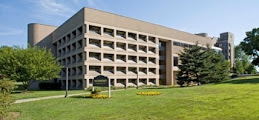
Friday, June 18, 2010
Changes in the 19th Edition of the Bluebook
This chart, based on the preface, details the changes in the new edition of the Bluebook. Click on the image for the full-size PDF.


Thursday, June 10, 2010
Lawyer2Lawyer Discusses BP Oil Spill
One of the worst environmental disasters of recent years, the BP oil spill in the Gulf of Mexico, is the topic of discussion in the latest podcast by Lawyer2Lawyer.
The Deepwater Horizon Oil Spill is considered one of the worst environmental disasters in recent years, with gallons of oils seeping into the Gulf of Mexico and beyond. Attorney and co-host, Bob Ambrogi welcomes Attorney Rhon E. Jones, Environmental Section Head at Beasley Allen, Crow, Methvin, Ports & Miles, and P.C. and Professor Robert Force, Director of Maritime Law Center at Tulane University Law School, to discuss the latest on this devastating spill. They look at the environmental legal issues and concerns surrounding the spill, maritime law, and touch upon the launching of a criminal investigation.
Labels:
BP oil spill,
environmental law,
Lawyer2Lawyer,
podcast
2010 ABA Legal Technology Survey ... cont.
To follow up on our previous post, the next two volumes: Litigation and Courtroom Technology (vol. III) and Web and Communication Technology (vol. IV) of the 2010 ABA Legal Technology Survey are now also available at the American Bar Association (ABA) website.
Some of the highlight of the survey include:
Courtroom Connectivity - Respondents report using their PDAs/smartphones/BlackBerrys in the courtroom to check for new e-mail (64%, compared with 52% in the 2009 survey), followed by sending e-mail (60%, compared with 49% in the 2009 survey), and calendaring (46%, compared with 39% in the 2009 survey).Virtual Lawyering - When asked whether they have a virtual law office/virtual law practice (i.e., do not typically meet with clients in person, and primarily interact with clients using Internet-based software and other electronic communications software), fourteen percent of respondents responded affirmatively.Net Note Taking - Twenty-two percent of respondents report the availability of research notebook software such as Evernote, OneNote, or Circus Ponies Notebook at their firms. Among the brand names mentioned, respondents most often listed Microsoft OneNote (62%).Saving Surprise - Nearly all respondents (98%) report that they generally save incoming e-mail related to cases or client matters. When asked how they save such e-mails, fifty-eight percent of respondents reported saving incoming e-mail to folders in an e-mail program; however a staggering 49% continue to print out hard copies.
Labels:
American Bar Association,
legal,
survey,
technology
Thursday, June 3, 2010
2010 ABA Legal Technology Survey
The ABA has recently released the 2010 Legal Technology Survey.
[It] is an annual project of the ABA's Legal Technology Resources Center (LTRC); the premier provider of information on technology and its use by the legal profession. The report comes in PDF format in six separate volumes.
The first two volumes, Technology Basics (Vol 1.) and Law Office Technology (Vol. 2), are available for purchase.
Google Patent Search
Google Patent search has been around since 2006, but one of the latest Google blog posts writes that this database has been recently updated with more information.
[W]e wanted to make it easier for people to understand the world of inventions, whether they were browsing curious patents or researching serious engineering.That's why we're proud to announce that the USPTO and Google are making this data available for free at http://www.google.com/googlebooks/uspto.html. This includes all granted patents and trademarks, and published applications - with both full text and images. In the future we will be making more data available including file histories and related data.
Google Patents is in beta version, includes over 7 million patents, and includes advanced search option. You can read more about Google patents here.
Wednesday, June 2, 2010
Metadata Ethics Opinions by ABA
The attorneys' professional responsibility to keep certain information confidential is nothing new but what if confidential, privileged, or otherwise sensitive information is inadvertently revealed via electronic file transfer because that information happened to be part of the document's metadata? American Bar Association (ABA) has recently tackled such situation and created a comparative chart displaying the attorneys' responsibility regarding metadata and ethics in various jurisdictions around the U.S.
Metadata is loosely defined as "data about data." More specifically, the term refers to the embedded stratum of data in electronics file that may include such information as who authored a document, when it was created, what software was used, any comments embedded within the content, and even a record of changes made to the document.While metadata is often harmless, it can potentially include sensitive, confidential, or privileged information. As such, it presents a serious concern for attorneys charged with maintaining confidentiality - both their own and their clients. Professional responsibility committees at several bar associations around the country have weighed in on attorneys' ethical responsibilities regarding metadata, but there is no clear consensus on the major metadata issues.
Tuesday, June 1, 2010
Writing Bad Briefs: How to Lose a Case in 100 Pages or More
This month's NYSBA Journal includes a tongue-in-cheek article by Judge Gerald Lebovits on writing bad briefs. An excerpt:
Judge Lebovits includes a list of several articles on good legal writing.
Miscite your authorities. Get the volume of the reporter right, but forget page numbers. Close enough is good enough, unless your goal is to lose by winning. If a decision is longer than one page, never give the pinpoint citation. Your goal is to make it so difficult for the judge to find any morsel of accuracy that the judge will turn to your adversary’s brief.
Judge Lebovits includes a list of several articles on good legal writing.
Subscribe to:
Comments (Atom)





